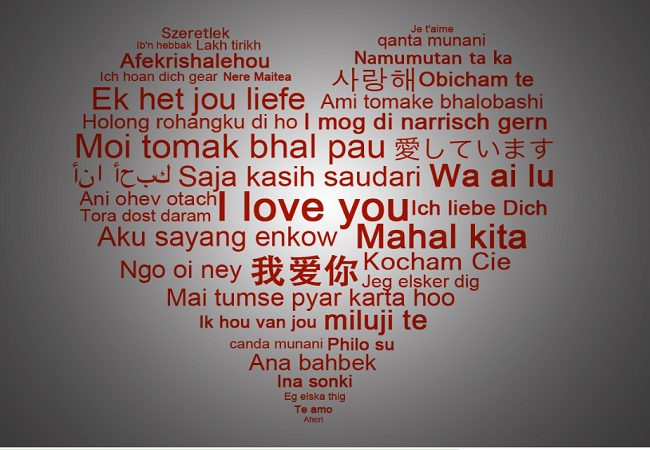Expressing love is a beautiful part of human relationships, and knowing how to say “I love you in Japanese” can enhance your connections with Japanese speakers. Japanese culture places great emphasis on emotions, and language is a key part of that expression. In this article, we’ll explore five powerful ways to convey your feelings in Japanese.
1. 愛してる (Aishiteru): The Classic Expression
The most straightforward way to say “I love you in Japanese” is 愛してる (aishiteru). This phrase is commonly used in romantic contexts and conveys deep affection.
When to Use Aishiteru
- Romantic Relationships: Perfect for partners and spouses.
- Serious Conversations: Best when you want to express heartfelt emotions.
Usage Tips
- Be Sincere: Only use this when you genuinely feel love; it’s a powerful phrase.
- Accompany with Gestures: Consider using eye contact and gentle touches to emphasize your feelings.
2. 大好き (Daisuki): A Warm Affection
Another wonderful way to express affection is through 大好き (daisuki), which translates to “I really like you” or “I love you very much.”
When to Use Daisuki
- Friends and Family: A perfect phrase for close friends and family members.
- Early Stages of Romance: It’s a lighter expression that’s great for budding relationships.
Examples of Daisuki in Action
- Friends: “あなたが大好きです” (anata ga daisuki desu) – “I really like you.”
- Family: Use it to show your love for family members, making it more relatable and less intense than aishiteru.
3. 愛しています (Aishiteimasu): A Polite Expression
For a more formal approach, you can say 愛しています (aishiteimasu). This is a respectful and polite way to express love.
When to Use Aishiteimasu
- Formal Situations: When addressing someone in a more respectful or formal context.
- With Elders: A great option when expressing love towards someone older than you.
Usage Tips
- Practice Politeness: In Japanese culture, respect is key. Use this phrase when you want to show both love and respect.
4. 好きです (Suki Desu): The Casual “Like”
好きです (suki desu) is a casual way to say “I like you.” While it may not directly translate to “I love you,” it’s often used to express affection.
When to Use Suki Desu
- Casual Conversations: Ideal for lighthearted exchanges.
- Building Up to More: Use it when you’re getting to know someone better.
Examples of Suki Desu in Use
- Friends: “君が好きです” (kimi ga suki desu) – “I like you.”
- Acquaintances: A great way to express fondness without overwhelming the other person.
5. もっと愛してる (Motto Aishiteru): More Love for You
If you want to add an extra touch, consider saying もっと愛してる (motto aishiteru), meaning “I love you more.”
When to Use Motto Aishiteru
- In Deep Conversations: When discussing your feelings in detail.
- For Added Emphasis: To show that your love is growing.
Tips for Expressing More Love
- Use a Romantic Setting: This phrase shines in intimate moments.
- Combine with Gifts or Acts of Kindness: Accompany your words with thoughtful gestures.
How to Say I Love You in Japanese
Understanding how to say “I love you in Japanese” is crucial for anyone looking to express affection in a romantic relationship. The phrase “I love you in Japanese” translates to 愛してる (aishiteru), a powerful expression that conveys deep emotion. Knowing this phrase not only enhances communication but also enriches cultural appreciation. By mastering how to say “I love you in Japanese,” you can connect more profoundly with Japanese-speaking partners. For more information on this topic, visit Busuu.
Different Ways to Express Love in Japanese
Exploring different ways to express love in Japanese expands your vocabulary and cultural understanding. Beyond simply saying “I love you in Japanese,” there are phrases like 大好き (daisuki) that convey fondness. Learning these expressions allows you to communicate affection more subtly and appropriately. Understanding these variations of “I love you in Japanese” makes your interactions richer and more meaningful. To delve deeper into this topic, check out Prep Scholar.
Japanese Phrases for Love and Affection
Japanese phrases for love and affection provide various options to express your feelings. While “I love you in Japanese” is a common phrase, exploring others like 好きです (suki desu) can enhance your ability to communicate love in different contexts. Understanding these phrases not only helps in romantic relationships but also deepens your appreciation of the Japanese language and culture. To learn more about these phrases, visit Busuu.
I Love You in Japanese Pronunciation
Knowing the correct pronunciation of “I love you in Japanese” is essential for effective communication. The phrase 愛してる (aishiteru) should be pronounced with a clear emphasis on the vowels. Mastering the pronunciation of “I love you in Japanese” ensures that your heartfelt expressions are received as intended. Additionally, learning to pronounce other affectionate phrases can enhance your conversational skills. For pronunciation guides and tips, check out Prep Scholar.
Romantic Phrases in Japanese for Couples
Using romantic phrases in Japanese for couples can enhance intimacy and connection. While “I love you in Japanese” (aishiteru) is essential, incorporating phrases like 君が好き (kimi ga suki) can express deeper affection. These romantic phrases not only add flavor to your conversations but also demonstrate your effort to embrace the culture. Exploring various romantic phrases enriches your relationship. For more phrases, visit Busuu.
How to Write I Love You in Japanese Characters
Learning how to write “I love you in Japanese” in characters can deepen your connection with the language. The characters 愛してる (aishiteru) embody the essence of love in Japanese culture. Practicing writing this phrase can also improve your overall Japanese writing skills. This knowledge can serve as a heartfelt gesture for your partner, making the phrase even more special. For guidance on writing, check out Prep Scholar.
Expressing Love in Japanese Culture
Expressing love in Japanese culture often requires an understanding of subtlety and context. While saying “I love you in Japanese” is important, it’s equally vital to recognize when and how to express this sentiment. Phrases like 大好き (daisuki) can be more appropriate in certain situations. Appreciating cultural nuances enriches your experience of learning the language. To learn more about cultural expressions of love, visit Busuu.
Love Quotes in Japanese Language
Love quotes in Japanese language can beautifully convey your feelings without needing to say “I love you in Japanese” directly. Exploring quotes offers insight into how love is viewed in Japanese culture. Sharing these quotes can deepen connections and add a poetic touch to your expressions of affection. For inspiration and examples, check out Prep Scholar.
Cute Ways to Say I Love You in Japanese
Discovering cute ways to say “I love you in Japanese” can bring a playful touch to your expressions of love. Phrases like 好きだよ (suki da yo) offer a light-hearted way to convey affection. Using these endearing phrases can strengthen your bond with loved ones while adding charm to your communication. For more cute expressions, visit Busuu.
I Love You in Japanese Translation
Understanding the translation of “I love you in Japanese” is essential for meaningful communication. The phrase 愛してる (aishiteru) is a direct translation, but various other phrases can express love in different contexts. Learning these translations enriches your conversations and deepens your appreciation for the language. For more insights into translations, check out Prep Scholar.
Conclusion: The Beauty of Expressing Love
Understanding how to say “I love you in Japanese” can enhance your relationships and help you connect on a deeper level. Whether you use aishiteru, daisuki, aishiteimasu, suki desu, or motto aishiteru, each expression carries its unique weight and meaning. Use them wisely and sincerely to strengthen your bonds.
FAQs
- What does aishiteru mean?
- Aishiteru means “I love you” in Japanese, often used in romantic contexts.
- Can I use daisuki with friends?
- Yes, daisuki is great for expressing warm feelings towards friends and family.
- Is aishiteimasu more formal?
- Yes, aishiteimasu is a polite way to say “I love you” and is suitable for formal situations.
- When should I use suki desu?
- Suki desu is casual and can be used in light-hearted conversations or when starting a relationship.
- What does motto aishiteru mean?
- Motto aishiteru means “I love you more,” adding emphasis to your feelings.
Additional Resources
For more insights into relationships and expressions of love, you might enjoy reading A Court of Silver Flames.
By learning these expressions, you can not only say “I love you in Japanese” but also deepen your connections with those around you.
You May Also Like:
Rich Dad Poor Dad: Discover 7 Powerful Lessons for Financial Success

